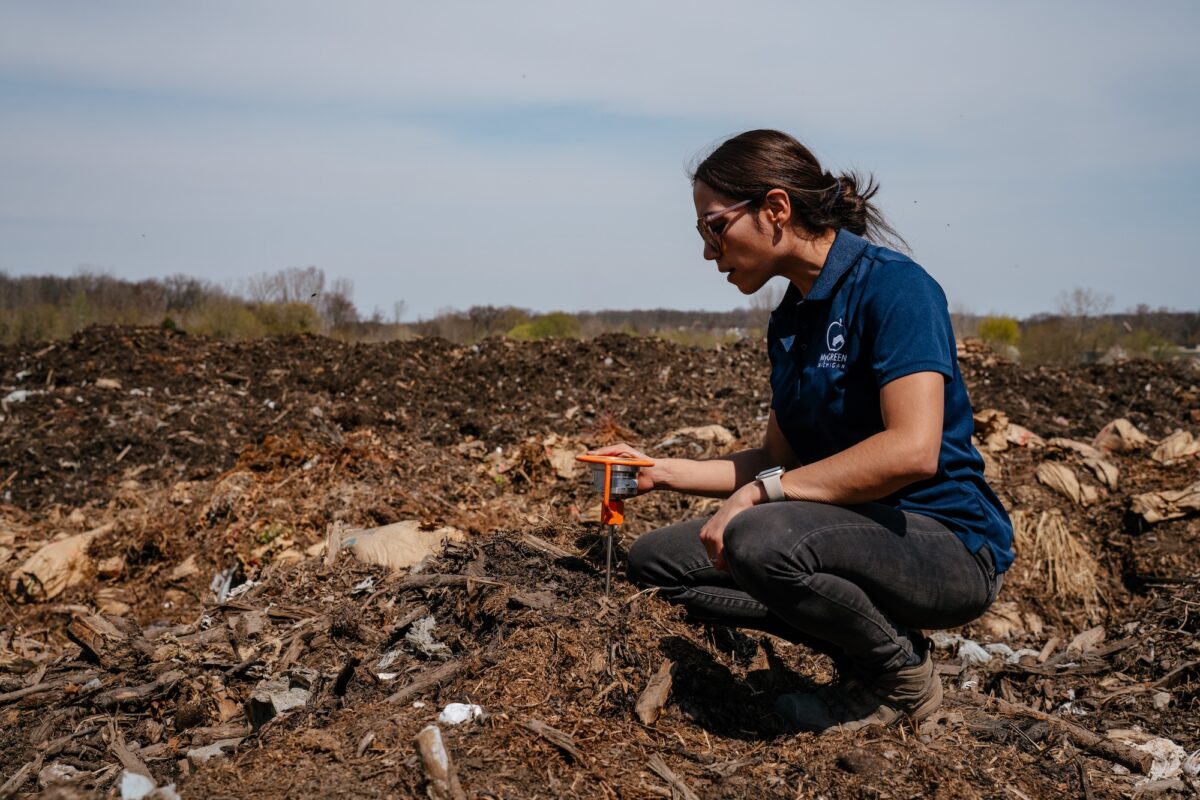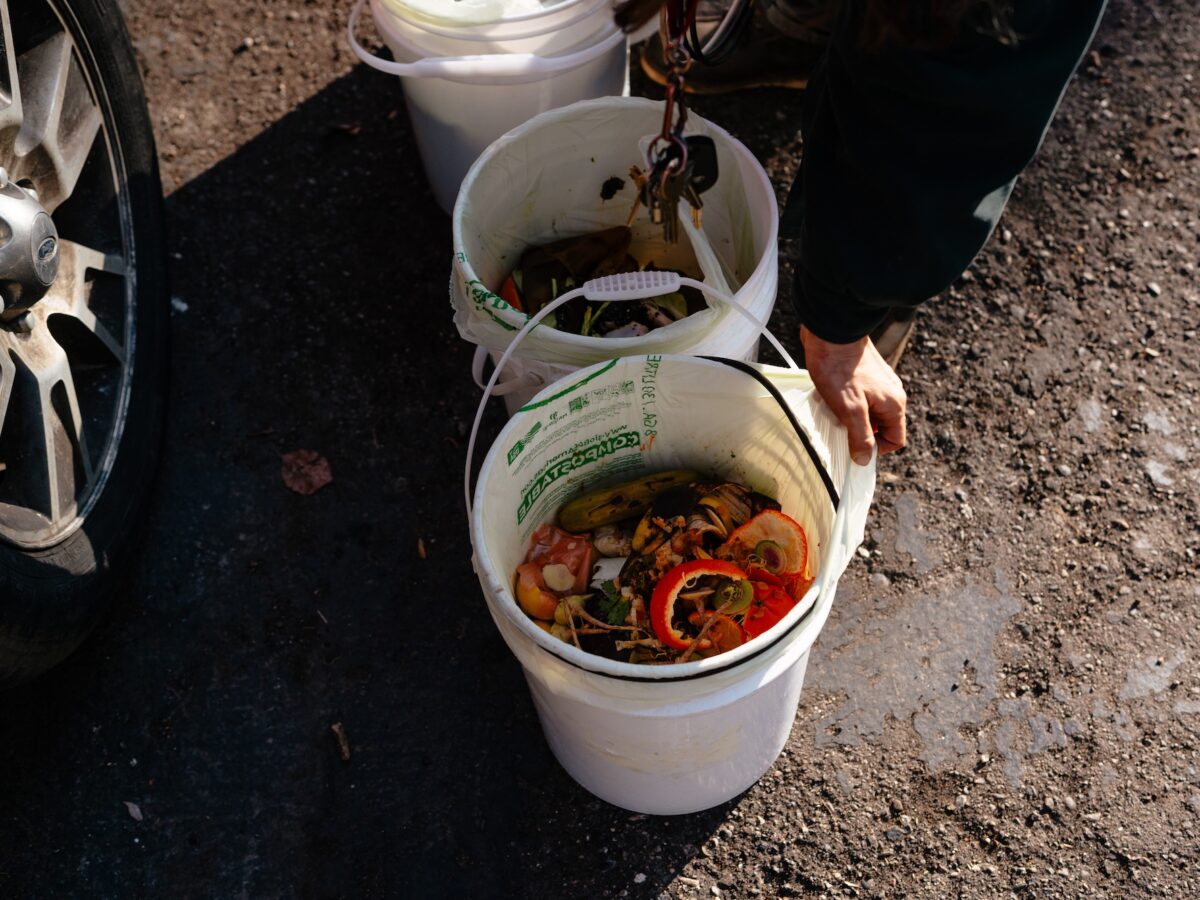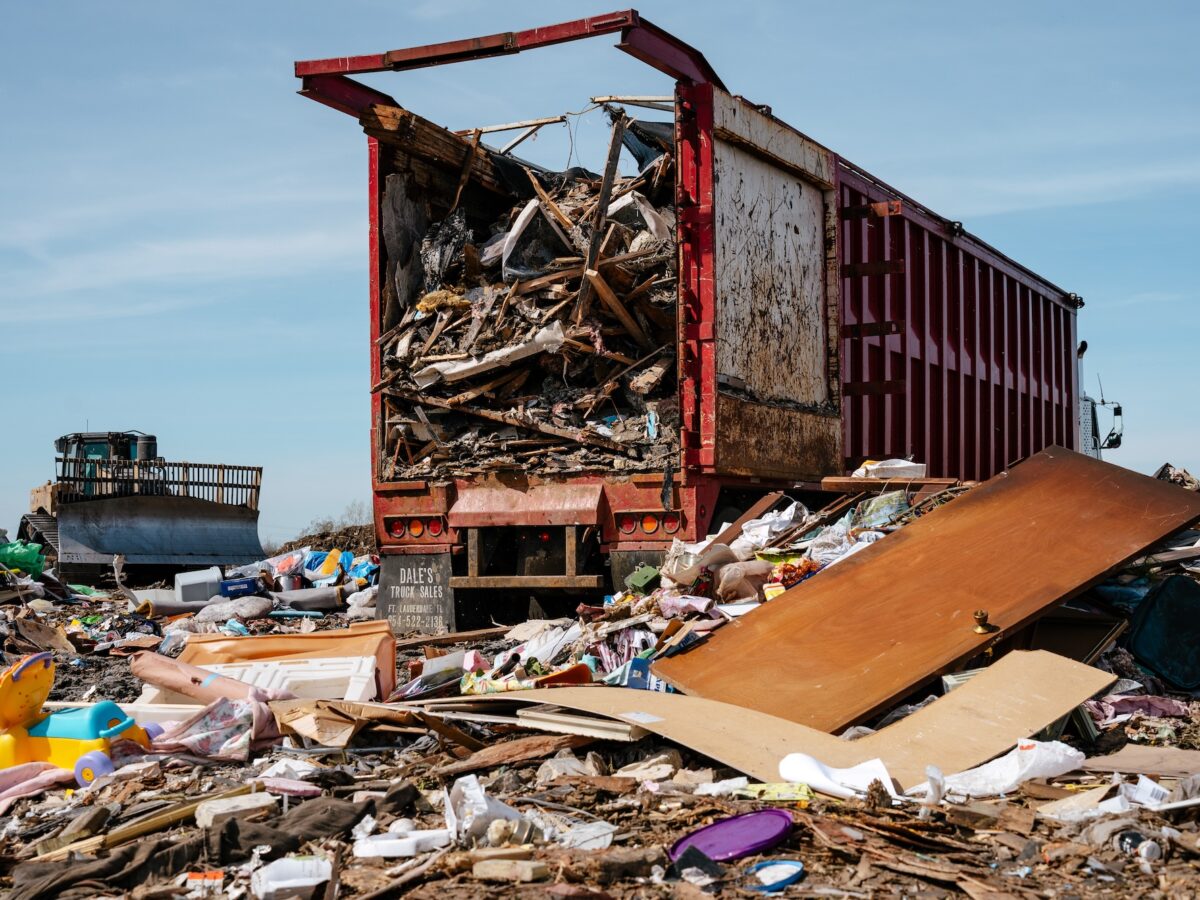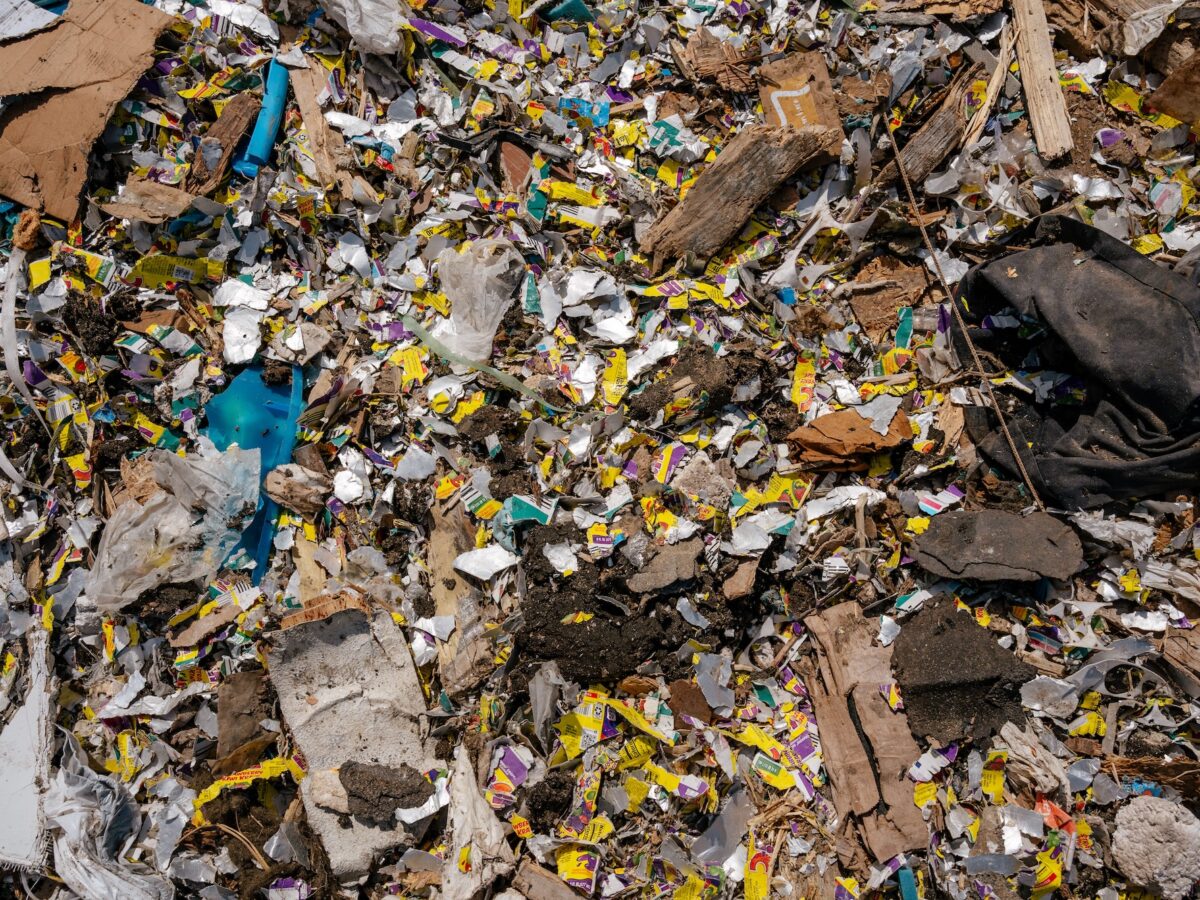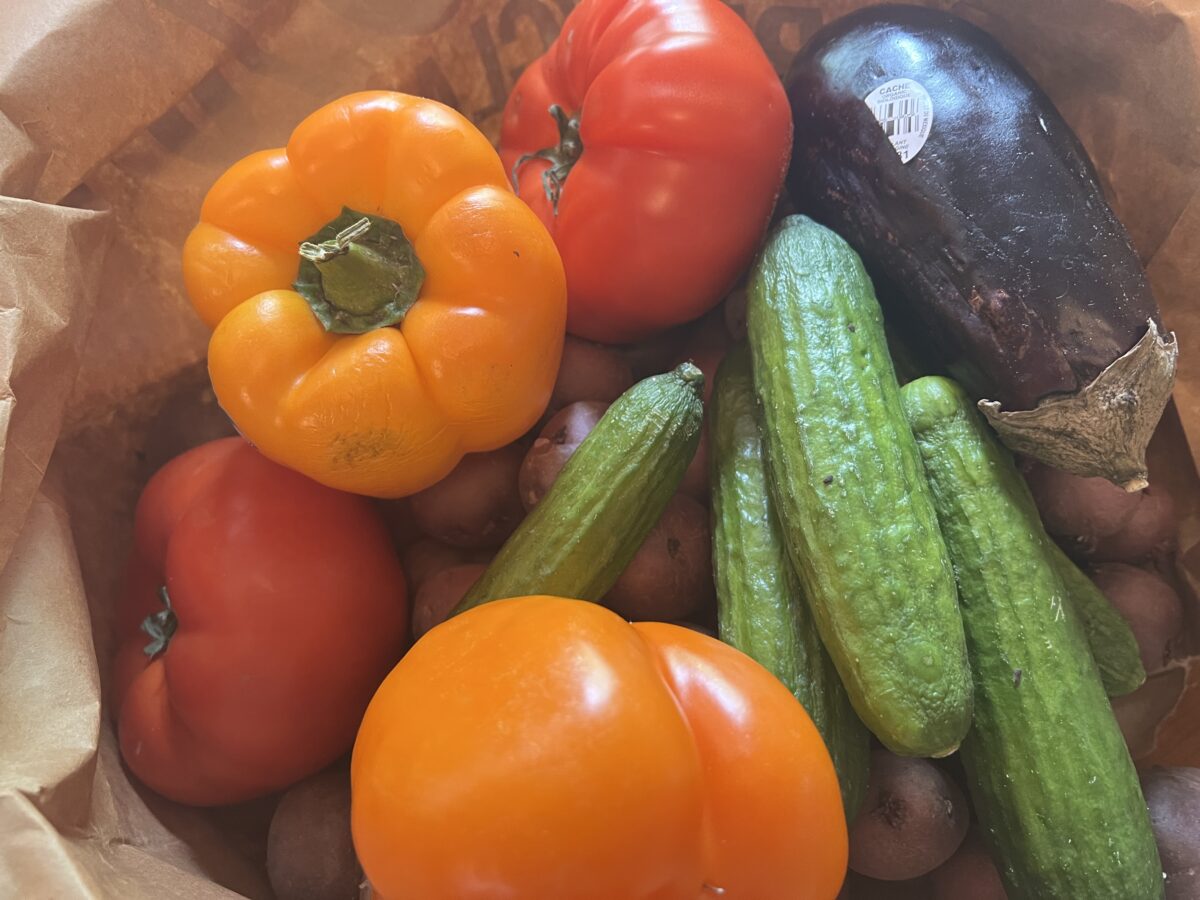Overview:
- Michiganders waste enough food to feed every hungry family in the state — a staggering 4.38 billion meals annually.
- The Michigan Food Waste Roadmap aims to cut this waste by half, preserving a billion dollars in economic value and reducing landfill emissions.
- Key strategies include investing in composting and anaerobic digestion, incentivizing food donations, and implementing tax credits for these donations. - Raising landfill tipping fees and standardizing food date labels are also on the table.
Michiganders waste enough food to feed every hungry family in the state – more than 4.38 billion meals per year. Food loss and waste is an issue that should be defining the sustainability movement as much as electric vehicles and renewable energy. It’s one I believe people care about instinctively – a literal kitchen table issue.
But it’s also the key to preserving our agricultural heritage, lowering climate-warming greenhouse gas emissions and reducing the need for landfill expansion.
The Michigan Food Waste Roadmap is a plan for the state to reduce food loss and waste by half, preserving a billion dollars of economic value and decreasing landfill receipts by 1.2 million tons per year.
More than 150 stakeholders from across the food value chain and emergency food system contributed their insights, giving us a general understanding of where our priorities should lie, while demonstrating the vast ecosystem of potential and mostly necessary solutions. Here are some of the key things Michiganders should be thinking about.
Shift the narrative on landfills and materials management
Although not without its challenges, recycling works. It is the starting point for a circular supply chain, a critically important part of our state’s manufacturing base and economy. Every community and business should have a robust recycling program.
However, while Michigan’s recycling rate has improved substantially over the past decade, our failure to address food waste is the primary reason the amount of material sent to Michigan landfills has increased at a rate 10 times greater than its population growth since 2015. Thankfully, due to investments in methane capture technology, emissions haven’t risen at the same rate, according to current estimates from the EPA. Let’s start there.
Michigan mandates the installation of methane capture systems. Michigan’s 2023 renewable energy law provided landfills with renewable energy credits for the gas they send to the grid. A little-known section of the law requires the Department of Environment, Great Lakes and Energy to develop guidelines for the practice. When this happens, and hopefully it will soon, we expect to see guidance that improves energy efficiency and facility profitability, while reducing emissions and any potential incentives to increase food waste for methane production.
Next, we need to plan for a future where food waste is no longer going to Michigan’s landfills. As most of the emissions from food waste escape before capture systems are installed, meaningful decreases will only come from future diversion. A dozen states have already banned food waste from landfills in some manner, and there is a general consensus among stakeholders that nutrients from food should at least be returned to the soil as nature intended.
Michigan communities should be plotting that future as part of the new sustainable materials management plans that were recently mandated by the Legislature. Counties or multicounty commissions have chartered committees that will overwrite existing solid waste management plans with a focus on achieving recycling benchmarks and improving the recycling rate.
Committee members should demand that plans prioritize investment in food waste diversion through composting or anaerobic digestion. Communities – and the local and county governments and regional waste authorities that serve them – should commit to developing that infrastructure and ensure programs exist to reduce waste at local businesses, educate consumers, and rescue food. Plans should clearly and definitively state a goal to reduce food waste in landfills.
Municipalities will largely be responsible for implementing these plans, and will be asked to approve them next year. Metro Detroit communities that aren’t already exploring their own food waste strategies should start evaluating potential ordinances and investments in collaboration with community stakeholders.
Create incentives for market-led solutions, starting with food rescue
The food banks and agencies that ensure Michigan residents have access to essential nutrition need food sources, and the rescue of surplus food (or upcycling of food byproducts) is a meaningful supply source. Food rescue is arguably Michigan’s most promising means of preventing food waste, with a long history of success. To achieve our diversion goals, the capacity to receive and distribute donated food must double or triple over the next decade.
Michigan’s first-in-the-nation Agricultural Surplus System Program allows food banks to purchase surplus local food and agricultural products from Michigan farmers. The highly successful program has been Michigan’s best solution for addressing food loss on farms, and its funding should be protected at all costs in the state budget, especially considering the impacts that federal funding disruptions are having on Michigan farms and its charitable food system.
Eleven states have adopted a state tax credit for donating food to food banks and rescue organizations. The existing federal tax deduction is not a sufficient incentive for food businesses that incur extraordinary costs to manage food donations. A tax credit for the qualified wholesale value of eligible fruits, vegetables, proteins and starches could provide qualifying businesses the necessary means to do so. Ideally, Michigan would also adopt a tax credit to offset the transportation costs of delivering food.
Michigan and Metro Detroit could look toward several other potential strategies to address food loss and waste, such as an increase in landfill surcharge fees or expanded grant programs, or the standardization of date labels on food products. The recommendations I have outlined above are attainable near-term wins for state regulators, regional planners, local communities, and the Legislature that would benefit everyone.
A roadmap for reducing food waste in Michigan: 10 attainable policy wins
Food waste is a solvable problem, and Michigan has an opportunity to lead. By enacting a series of targeted, feasible policy changes, the state can divert food from landfills, support families facing food insecurity, and build a more sustainable and equitable food system. The following proposals represent practical actions that state and local leaders could take to significantly reduce food waste in 2025 and beyond.
- Expand farm-to-food bank programs
The Michigan Legislature can increase funding for initiatives that connect farmers with food banks, helping to redirect surplus produce to families in need. These programs offer a win-win: they reduce waste on farms while addressing food insecurity. The Food Bank Council of Michigan and the Michigan Farm Bureau have championed similar efforts and can help advance this initiative. - Incentivize food donations with tax credits
A state-level tax credit for businesses and farms that donate surplus food would provide a financial incentive to recover edible food that might otherwise go to waste. Michigan Sustainable Business Forum, Forgotten Harvest, and Metro Food Rescue Network support this commonsense policy, which has proven successful in other states. - Clarify rules around gas capture in renewable energy projects
The Michigan Department of Environment, Great Lakes, and Energy (EGLE) can develop guidelines for the collection and sale of landfill gas as renewable energy and improved monitoring of methane emissions. Environmental groups like the Ecology Center and Sierra Club Michigan Chapter lead this effort. - Incorporate food waste reduction into regional planning
Regional planning agencies can integrate food waste goals into climate action and sustainability plans. Doing so would catalyze local action while ensuring alignment with state environmental and public health priorities. Organizations like Michigan Sustainable Business Forum and Make Food Not Waste can provide technical assistance and outreach support. - Fund infrastructure for the Detroit Food Terminal
The Legislature should consider supporting Metro Food Rescue’s proposed Detroit Food Terminal, which would expand the region’s capacity to recover, sort, and distribute surplus food. This project would strengthen food access and resilience across southeast Michigan. - Establish a statewide food waste commission
A state-chartered food waste commission would help institutionalize cross-sector collaboration and accountability. By bringing together key departments, this body could guide long-term strategy and ensure that Michigan’s food waste reduction efforts are coordinated and impactful. - Raise landfill tipping fees to support diversion efforts
Michigan has one of the lowest landfill surcharge fees in the country. Increasing this fee would discourage waste disposal while generating revenue that could be reinvested in composting, food rescue, and recycling programs. The Legislature could ensure that new revenue directly supports waste diversion infrastructure. - Standardize food date labeling to reduce confusion
The Legislature can reduce consumer confusion—and unnecessary food waste—by adopting a standardized food labeling format. “Use By” should denote food safety, while “Best if Used By” should indicate quality. This approach aligns with national recommendations and could be implemented statewide. - Support local composting through ordinance reform
Municipalities can proactively revise local ordinances to allow for composting at home and the siting of compost facilities. These local changes would remove barriers to food scrap recycling and enable more residents to divert organic waste. - Create tax credits for composting investments
The Legislature can further support composting by offering tax credits for purchasing compost equipment, transporting food scraps, or operating compost processing facilities. This incentive would help scale Michigan’s organics recycling sector and create green jobs in the process.
This series, produced as part of the MIT Environmental Solutions Journalism Fellowship, investigates how Michigan’s food waste system contributes to climate change through landfill methane emissions—and explores the local solutions that could turn the tide. From farm to fridge to landfill, we examine how wasted food impacts our environment, economy, and communities, and highlight the people working to build a more sustainable, climate-friendly future. Published in partnership with Next City.

